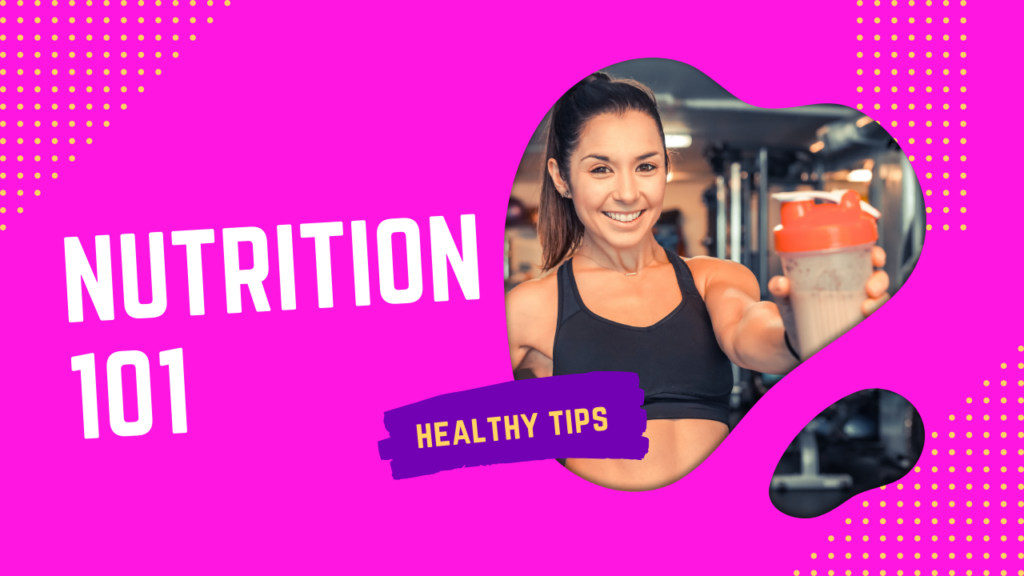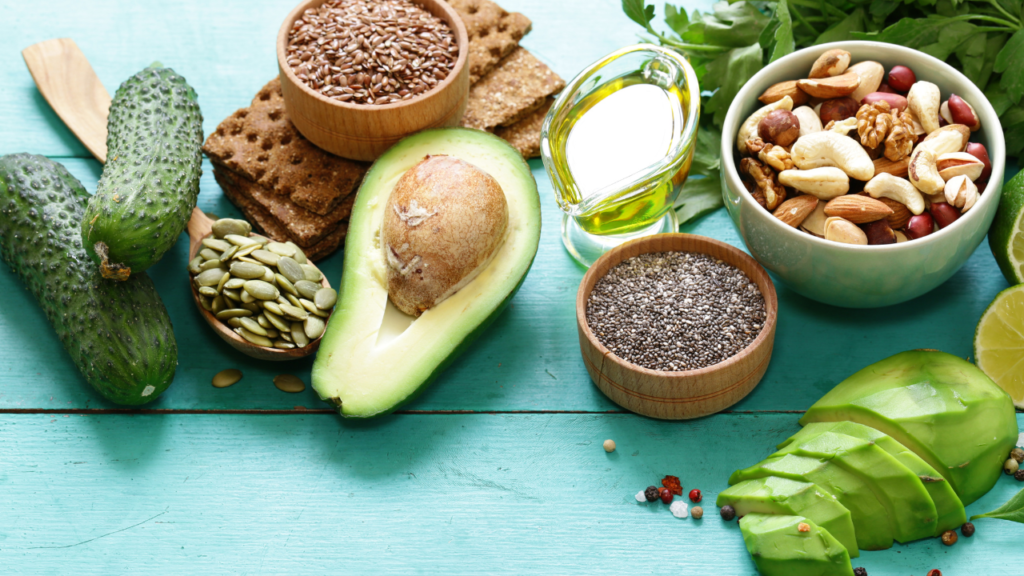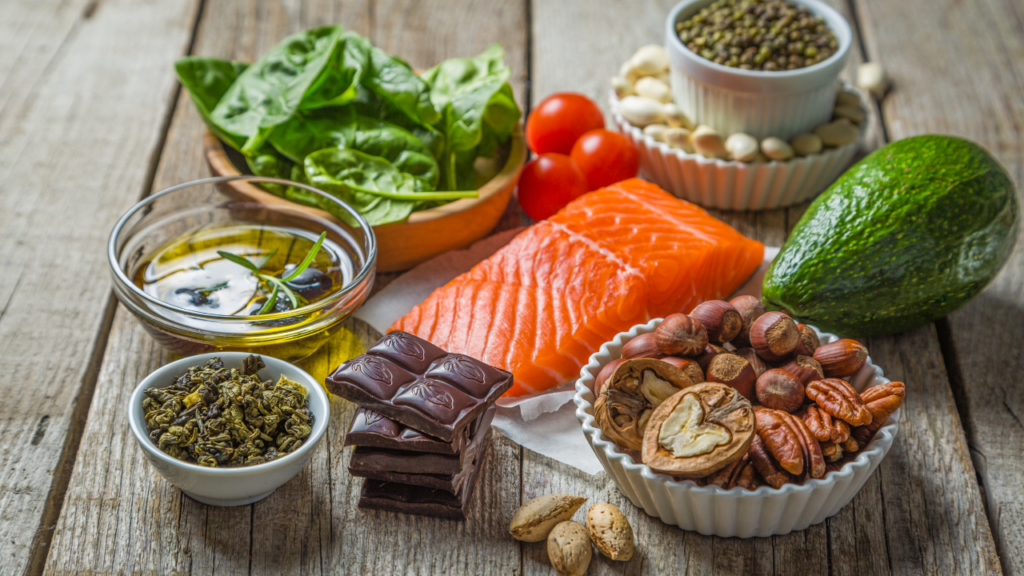Table of Contents
ToggleWhat is a Balanced Diet?
A balanced diet refers to the consumption of a variety of nutrient-rich foods that provide the necessary calories, vitamins, minerals, and other essential nutrients for optimal health. Healthy eating plays a crucial role in nourishing the body and reducing the risk of diseases like diabetes, heart disease, and obesity. It is not about following a specific diet but rather making choices that meet individual preferences and nutritional needs.
To ensure a balanced diet, it is important to focus on nutrient density. Nutrient-dense foods are those that contain a high amount of nutrients relative to their calorie content. These include fruits, vegetables, nuts, seeds, beans, and fatty fish. By prioritizing these wholesome options, we can ensure that our bodies receive the necessary fuel and nourishment.
Another key aspect of a balanced diet is variety. Incorporating a wide range of foods promotes gut health and helps maintain a healthy weight. Additionally, it is important to strike a balance between macronutrients such as protein, carbohydrates, and fats. By doing so, we can support our body’s various functions and maintain optimal energy levels.
In order to optimize our diet, it is essential to limit the consumption of highly processed foods and beverages. These items often lack the essential nutrients our bodies need and are typically high in added sugars, unhealthy fats, and sodium. By making mindful choices and limiting these processed foods, we can further support our overall health and well-being.
Nutrition 101
| Nutrient-Rich Foods to Prioritize | Examples |
|---|---|
| Fruits | Apples, oranges, berries |
| Vegetables | Leafy greens, broccoli, carrots |
| Nuts and Seeds | Almonds, chia seeds, flaxseeds |
| Beans and Legumes | Chickpeas, lentils, black beans |
| Fatty Fish | Salmon, mackerel, sardines |
Lastly, adequate hydration is essential for supporting metabolic processes and overall well-being. Drinking enough water throughout the day helps regulate body temperature, maintain organ function, and transport nutrients to cells.
In conclusion, a balanced diet is not only about consuming nutrient-rich foods but also about prioritizing variety, balancing macronutrients, and staying hydrated. By making mindful choices, planning meals in advance, and seeking support from a community, we can ensure balanced nutrition and a healthy lifestyle.

The Importance of Healthy Eating for Optimal Health
Healthy eating plays a crucial role in maintaining optimal health by providing the body with the necessary calories and nutrients it needs to function properly. Not only does it support physical well-being, but it also reduces the risk of chronic diseases such as diabetes, heart disease, and obesity. Following dietary recommendations and adopting a balanced diet can have a significant positive impact on overall well-being.
To ensure a healthy eating plan, it is important to prioritize nutrient-dense foods. Nutrient density refers to the amount of nutrients in food relative to its calorie content. By choosing whole, nutrient-rich foods like fruits, vegetables, nuts, seeds, beans, and fatty fish, you can provide your body with essential vitamins, minerals, and antioxidants. These foods offer a wide range of health benefits and help support optimal body functioning.
In addition to nutrient-dense foods, variety is key to a healthy diet. A diverse range of food choices helps promote gut health and maintain a healthy weight. By incorporating different types of fruits, vegetables, whole grains, lean proteins, and healthy fats, you can ensure a well-rounded nutritional intake. This variety not only enhances the flavor and enjoyment of meals but also provides a wider range of essential nutrients that support overall health.
While it is important to focus on consuming nutrient-dense foods, it is equally crucial to limit the consumption of highly processed foods and beverages. These products often contain added sugars, unhealthy fats, and high levels of sodium, which can negatively impact health. By reducing the intake of processed foods and opting for whole, unprocessed alternatives, you can maintain a healthier diet and improve overall well-being.
| Benefits of Healthy Eating | Examples of Nutrient-Dense Foods |
|---|---|
| Reduces the risk of chronic diseases | Fruits and vegetables |
| Supports optimal body functioning | Nuts and seeds |
| Promotes gut health | Beans and legumes |
| Helps maintain a healthy weight | Fatty fish |
By maintaining a balanced diet that includes a variety of nutrient-dense foods, limiting processed food consumption, and practicing mindful eating, you can make sustainable choices that contribute to your overall well-being. It is important to consult a nutritionist or healthcare professional to tailor your diet to your specific needs and preferences. Remember, small changes in your eating habits can have a significant impact on your health in the long run.
Prioritizing Nutrient-Dense Foods for Well-Rounded Nutrition
To achieve well-rounded nutrition, it is important to prioritize whole, nutrient-dense foods that are rich in essential nutrients. These foods provide the necessary vitamins, minerals, and antioxidants that support optimal health and overall well-being. Nutrient density refers to the amount of nutrients in food relative to its calories. By choosing nutrient-dense foods, you can maximize the nutritional value you get from each calorie consumed.
When it comes to nutrient-rich foods, fruits and vegetables are at the top of the list. They are packed with vitamins, minerals, and fiber that contribute to various bodily functions. For example, leafy greens like kale and spinach are excellent sources of calcium, iron, and vitamin K, while berries offer an abundance of antioxidants that combat oxidative stress.
| Food Group | Examples of Nutrient-Dense Foods |
|---|---|
| Fruits | Blueberries, oranges, avocados |
| Vegetables | Broccoli, spinach, bell peppers |
| Nuts and Seeds | Almonds, chia seeds, flaxseeds |
| Legumes | Chickpeas, lentils, black beans |
| Fatty Fish | Salmon, trout, sardines |
In addition to fruits and vegetables, incorporating nuts, seeds, legumes, and fatty fish into your diet can help provide essential nutrients such as healthy fats, protein, and omega-3 fatty acids. These foods are not only nutrient-dense but also offer other health benefits. For example, nuts and seeds are rich in heart-healthy fats while legumes are high in fiber and promote digestive health.
By prioritizing whole, nutrient-dense foods in your meals, you can ensure that your body receives the necessary nutrients it needs to thrive. It’s important to remember that a well-rounded diet is not about strict restrictions or depriving yourself of certain foods. Instead, focus on incorporating a variety of nutrient-rich foods into your daily meals and snacks. With mindful eating and proper planning, you can achieve a balanced and nourishing diet that supports your overall health and well-being.

The Role of Variety in Supporting Gut Health and Weight Management
Including a diverse range of foods in your diet is key to supporting gut health and achieving a healthy weight. Consuming a variety of foods ensures that you obtain a wide array of essential nutrients that are necessary for maintaining optimal health. Additionally, different types of foods contain different types of fiber, which plays a crucial role in supporting a healthy gut microbiome.
A healthy gut microbiome is essential for proper digestion, nutrient absorption, and immune function. Research has shown that a diverse and balanced diet that includes a variety of plant-based foods, whole grains, lean proteins, and healthy fats can help promote a diverse and beneficial gut microbiota. This, in turn, contributes to improved gut health and overall well-being.
Moreover, incorporating a variety of foods in your diet can also support weight management. When you consume a wide range of foods, you are more likely to meet your body’s nutrient needs, which can help reduce cravings and promote feelings of satiety. This can prevent overeating and support a healthy weight balance.
| Benefits of Variety in Diet |
|---|
| Supports gut health |
| Aids in weight management |
| Provides a wide array of essential nutrients |
| Reduces cravings and promotes satiety |
When incorporating variety into your diet, consider the different food groups and aim to include a colorful assortment of fruits and vegetables, whole grains, legumes, lean proteins, and healthy fats. Experiment with new recipes and try different cooking methods to keep your meals exciting and enjoyable. Additionally, consider incorporating fermented foods like yogurt, sauerkraut, and kimchi, which can provide beneficial probiotics that support a healthy gut microbiome.
Remember, achieving a healthy weight and supporting gut health is not about strict dietary restrictions or fad diets. It’s about cultivating a balanced and diverse approach to nutrition that nourishes your body and promotes overall well-being.
Balancing Macronutrients and Limiting Highly Processed Foods
Achieving optimal health requires striking the right balance of macronutrients and minimizing the intake of highly processed foods. Macronutrients, namely protein, carbohydrates, and fats, are essential for providing the body with energy and supporting various physiological processes.
“It’s important to understand the role of each macronutrient and how they contribute to overall health,” says Dr. Michelle Lopez, a registered dietitian.
“Protein is crucial for tissue repair and growth, while carbohydrates are the body’s primary source of fuel. Fats play a vital role in hormone production and nutrient absorption.”
To maintain a balanced diet, it’s essential to include a variety of high-quality sources of each macronutrient. For protein, consider options like lean meats, poultry, fish, dairy products, and plant-based sources such as legumes, nuts, and seeds. Whole grains, fruits, vegetables, and dairy products are excellent sources of carbohydrates. Include healthy fats from sources like avocados, olive oil, nuts, and fatty fish.
| Macronutrient | Food Sources |
|---|---|
| Protein | Chicken, fish, tofu, beans, lentils |
| Carbohydrates | Oats, quinoa, sweet potatoes, fruits, whole-grain bread |
| Fats | Avocado, olive oil, nuts, seeds, fatty fish |
On the other hand, highly processed foods tend to be low in essential nutrients and high in unhealthy additives, such as added sugar, unhealthy fats, and artificial preservatives. These foods often lack the fiber, vitamins, and minerals needed for optimal health.
Incorporating whole, minimally processed foods into your diet is crucial for reaping the benefits of balanced nutrition. Opt for fresh fruits and vegetables, whole grains, lean proteins, and healthy fats. Minimize the consumption of pre-packaged meals, fast food, sugary snacks, and sodas, as these can contribute to weight gain and increase the risk of chronic diseases.
Achieving a balanced diet by focusing on macronutrient balance and minimizing highly processed foods can have a significant impact on your overall health and well-being. Consult a registered dietitian or nutritionist for personalized advice and guidance based on your specific needs and goals.
Maintaining Adequate Hydration for Optimal Health
Sufficient water intake is crucial for maintaining optimal health and supporting various metabolic processes in the body. Water is involved in numerous physiological functions, such as regulating body temperature, transporting nutrients and oxygen to cells, and removing waste products. It also plays a key role in digestion, absorption, and circulation.
When it comes to hydration, it’s important to listen to your body’s signals and drink water throughout the day to stay adequately hydrated. The amount of water needed can vary depending on individual factors such as age, gender, activity level, and climate. The National Academies of Sciences, Engineering, and Medicine recommends a daily water intake of about 3.7 liters (for men) and 2.7 liters (for women) from various sources, including beverages and food.
| Factors Influencing Daily Water Needs | Recommended Daily Water Intake (Liters) |
|---|---|
| Age |
|
| Physical Activity Level |
|
| Climate |
|
In addition to water, other beverages like herbal tea, unsweetened milk, and natural fruit juices can contribute to overall hydration. However, it’s important to limit the intake of sugary drinks and caffeinated beverages, as they can have diuretic effects and lead to dehydration if consumed in excess. It’s best to prioritize water as the main source of hydration.
In conclusion, maintaining adequate hydration is essential for supporting optimal health and ensuring proper functioning of the body’s metabolic processes. By listening to your body’s needs, incorporating recommendations for water intake, and making water the primary choice for hydration, you can promote overall well-being and enhance your daily performance.

Harnessing the Power of Mindful Eating for Sustainable Choices
Mindful eating can transform your relationship with food, empowering you to make sustainable choices that support long-term well-being. It involves paying attention to the present moment and being fully engaged in the act of eating. By practicing mindful eating, you can develop a deeper appreciation for the food you consume, enhance your enjoyment of meals, and cultivate a healthier approach to nourishment.
One of the key aspects of mindful eating is slowing down and savoring each bite. By taking the time to chew your food thoroughly and truly taste the flavors, you can develop a greater sense of satisfaction from smaller portions. This can help prevent overeating and promote weight management. Additionally, mindful eating encourages you to listen to your body and recognize its hunger and fullness cues, allowing you to respond to its needs more effectively.
Integrating mindful eating practices into your daily routine can be as simple as setting aside dedicated mealtimes and eliminating distractions such as screens or multitasking. It’s important to engage all your senses during meals, appreciating the aromas, textures, and colors of the food in front of you. In doing so, you can cultivate a deeper connection to the nourishment you’re providing your body.
Not only does mindful eating benefit your personal well-being, but it also supports a sustainable approach to food choices. When you choose to eat mindfully, you become more attuned to how your food choices impact your health and the environment. This awareness can lead to a greater emphasis on selecting whole, nutrient-dense foods that promote both your own well-being and that of the planet. By making sustainable choices, you contribute to the preservation of natural resources and encourage a more ethical and environmentally friendly food system.
| Benefits of Mindful Eating | How to Practice Mindful Eating |
|---|---|
|
|
Mindful eating is not a diet; it is a mindset that encourages a deeper connection with your body and the food you consume. By practicing mindfulness during meals, you can transform your eating habits and create a more sustainable and fulfilling relationship with food.
Conclusion
Mindful eating is a powerful tool that can positively impact your overall well-being. By implementing mindful eating practices, you can develop a healthier relationship with food, make sustainable choices, and support your long-term physical and mental health. Take the time to savor each bite, listen to your body’s cues, and choose nourishing foods. Embracing mindful eating as a way of life can lead to lasting positive changes and a greater sense of balance and satisfaction in your relationship with food.
Conclusion
Prioritizing a balanced diet and making conscious food choices are essential steps toward achieving optimal health and overall well-being. A balanced diet involves consuming nutrient-dense foods while minimizing the intake of highly processed foods. By adopting healthy eating habits, individuals can provide their bodies with the necessary calories and nutrients to function properly, reducing the risk of diseases like diabetes, heart disease, and obesity.
Healthy eating does not require following a specific diet; instead, it can be tailored to individual preferences and needs. Nutrient density is a crucial aspect of a balanced diet, referring to the amount of nutrients in food relative to its calories. Focusing on whole, nutrient-dense foods such as fruits, vegetables, nuts, seeds, beans, and fatty fish can ensure the body receives essential nutrients for optimal health.
Variety is key in a healthy diet as it supports gut health and helps maintain a healthy weight. By incorporating a diverse range of foods, individuals can provide their bodies with a wide spectrum of nutrients and promote overall well-rounded nutrition. Balancing macronutrients, such as protein, carbohydrates, and fats, is also important for meeting nutritional needs and maintaining a healthy lifestyle.
In addition, it is crucial to limit the consumption of highly processed foods and beverages. These products often contain excessive amounts of added sugars, unhealthy fats, and artificial additives, which can negatively impact health. By opting for whole foods and preparing meals at home, individuals can have more control over the nutritional content of their diet.
Hydration plays a significant role in supporting metabolic processes and overall well-being. Drinking an adequate amount of water is essential for proper digestion, nutrient absorption, and toxin elimination. Staying hydrated throughout the day can improve energy levels, promote healthy skin, and optimize bodily functions.
Furthermore, adopting mindful eating practices can contribute to making sustainable long-term choices and enhancing focus. By eating slowly, savoring each bite, and paying attention to hunger and fullness cues, individuals can develop a better relationship with food and foster a healthier mindset toward eating.
Consulting a nutritionist can also provide valuable guidance and support in creating a personalized and sustainable nutrition plan. Additionally, seeking support from a community of like-minded individuals can offer motivation, inspiration, and accountability on the journey to maintaining a balanced diet and a healthy lifestyle.
In conclusion, prioritizing a balanced diet, consisting of nutrient-rich foods, and being mindful of food choices are essential for achieving optimal health and overall well-being. By adopting these habits, individuals can provide their bodies with the necessary nutrients and pave the way for a healthier and happier life.
FAQ
Q: What is a balanced diet?
A: A balanced diet involves eating nutrient-dense foods and avoiding processed foods. It ensures that your body receives the necessary calories and nutrients to function properly.
Q: Why is healthy eating important?
A: Healthy eating is important because it reduces the risk of diseases like diabetes, heart disease, and obesity. It provides your body with the necessary nutrients for optimal health and overall well-being.
Q: What are nutrient-dense foods?
A: Nutrient-dense foods refer to those that provide a high amount of nutrients relative to their calories. Examples include fruits, vegetables, nuts, seeds, beans, and fatty fish.
Q: Why is variety important in a healthy diet?
A: Variety in a healthy diet supports gut health and helps maintain a healthy weight. It ensures that you receive a range of essential nutrients from different foods.
Q: How should macronutrients be balanced?
A: Macronutrients, such as protein, carbohydrates, and fats, should be balanced in a healthy diet. It’s important to include sources of each macronutrient and avoid excessive consumption of highly processed foods and beverages.
Q: Why is proper hydration important?
A: Adequate hydration is crucial for supporting metabolic processes and overall well-being. It’s important to drink sufficient water throughout the day.
Q: What is mindful eating?
A: Mindful eating is the practice of paying attention to the present moment and being fully engaged in the eating experience. It can help make sustainable long-term choices and enhance focus.
Q: How can I ensure balanced nutrition throughout the day?
A: Smart snacking and planning meals in advance can help ensure balanced nutrition throughout the day. Consulting a nutritionist and seeking support from a community can also be beneficial.











